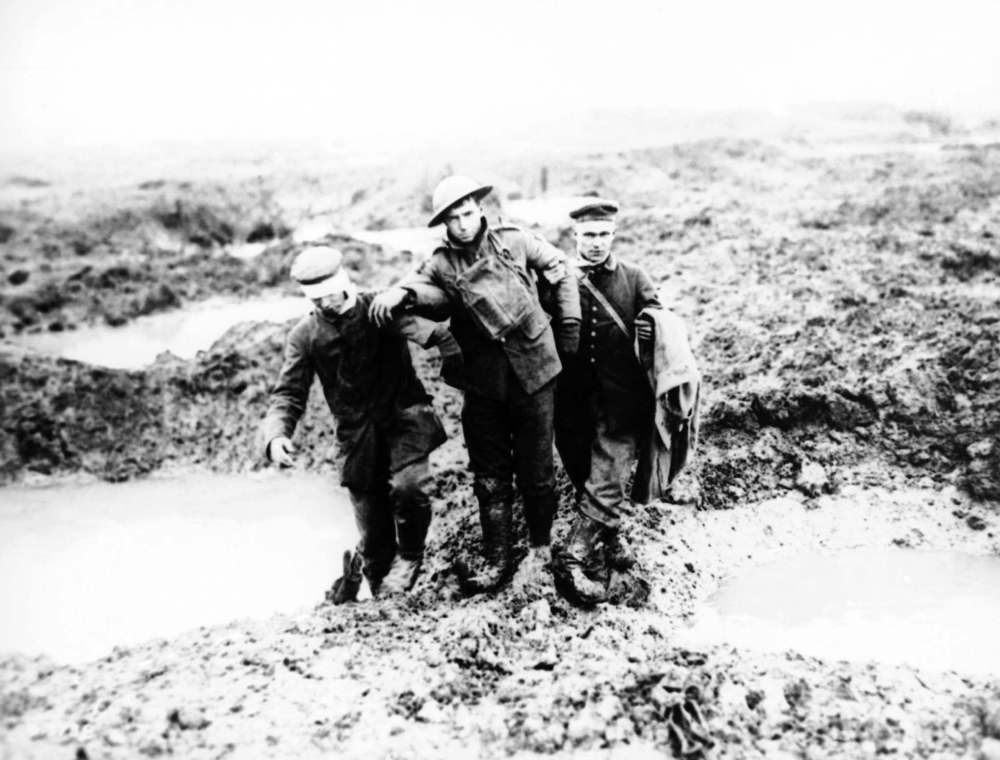Visiting historic battle sites a century later
Student whose relative was founding member of PPCLI among delegation headed to Belgium
Advertisement
Read this article for free:
or
Already have an account? Log in here »
To continue reading, please subscribe:
Monthly Digital Subscription
$0 for the first 4 weeks*
- Enjoy unlimited reading on winnipegfreepress.com
- Read the E-Edition, our digital replica newspaper
- Access News Break, our award-winning app
- Play interactive puzzles
*No charge for 4 weeks then price increases to the regular rate of $19.00 plus GST every four weeks. Offer available to new and qualified returning subscribers only. Cancel any time.
Monthly Digital Subscription
$4.75/week*
- Enjoy unlimited reading on winnipegfreepress.com
- Read the E-Edition, our digital replica newspaper
- Access News Break, our award-winning app
- Play interactive puzzles
*Billed as $19 plus GST every four weeks. Cancel any time.
To continue reading, please subscribe:
Add Free Press access to your Brandon Sun subscription for only an additional
$1 for the first 4 weeks*
*Your next subscription payment will increase by $1.00 and you will be charged $16.99 plus GST for four weeks. After four weeks, your payment will increase to $23.99 plus GST every four weeks.
Read unlimited articles for free today:
or
Already have an account? Log in here »
Hey there, time traveller!
This article was published 07/11/2017 (2962 days ago), so information in it may no longer be current.
OTTAWA — One hundred years after a Winnipeg regiment captured the Belgium town of Passchendaele, a local high-schooler is visiting the soil her relative helped storm, in the hopes of sharing the importance of peace.
“It’s a really, really big honour,” said Kiera Wortley, a Grade 12 student at Collège Jeanne-Sauvé.
She’s one of five youth who left Tuesday in a military jet headed for Lille, France, for a week of touring battlefields and memorials, and meeting historians in both France and Belgium. The 35-person delegation also includes Charleswood-area MP Doug Eyolfson.

Wortley’s great-grandmother’s godfather fought at Passchendaele, one of the most storied sites of combat in the First World War, before dying in combat in France nine months later. Her great-grandmother’s own father was discharged due to what was then called shell-shock, now understood as post-traumatic stress disorder.
Both were founding members of Princess Patricia’s Canadian Light Infantry, something her great-grandmother made sure the family knew.
“She would’ve been very excited for this,” Wortley said the day before her trip. She spoke with the Free Press as Belgium marked a century since the capturing of Passchendaele from German troops.
The Canadians came in after British, Australian and English troops spent three months facing down German machine gunners and the threat of another chlorine-gas attack in the muddy Yprès area.
Despite limited time and ammunition, the Canadians entered the fray on Oct. 26, and on Nov. 6 captured Passchendaele, which fell to the Winnipeg-based 27th Battalion.
As a French-immersion student, Wortley hopes to practise her French with the locals, to understand how they remember the history and what her relatives endured.
“I want to be able to take it all in and get the most from it as possible,” she said.
The delegation comprises civil servants, veteran and Indigenous groups, five young people and five parliamentarians, including Eyolfson.
As a physician, Eyolfson says he’s looking forward to seeing a memorial for John McCrae, a battlefield surgeon better known for his poem, In Flanders Fields. He anticipates it will be emotional to see Passchendaele.
“It’s just such a huge peace of history; such a horrible loss. To commemorate that I think is going to be very meaningful.”
Eyolfson is bringing along some mementos from Winnipeg veterans. The Charleswood Legion has given him a plaque commemorating soldiers’ service, while the local Anavets chapter has sent a flag.
The group will help dedicate the Canada Gate, a metal arch from Nova Scotia that mirrors a memorial on the Halifax waterfront, which marks where many soldiers took their last steps in Canada.
“I think people need to remember what the cost is when we go to war,” Eyolfson said.
“We have Canadians who are putting their lives on the line for us, and if we’re going to make the decision to send them to war, we’re responsible for them, and we have to make sure we’re sending them for the right reasons.”
Wortley has similar thoughts, and she isn’t nervous about spending a week abroad with strangers.
In a world that seems increasingly unstable, Wortley hopes she can take back something to share, to help people learn from the sacrifices of the First World War.
“We need to look at it as what not to do, and maybe as a bit of a cautionary tale,” she said.
dylan.robertson@freepress.mb.ca
History
Updated on Tuesday, November 7, 2017 3:18 PM CST: Updated
Updated on Wednesday, November 8, 2017 7:22 AM CST: Headline changed


